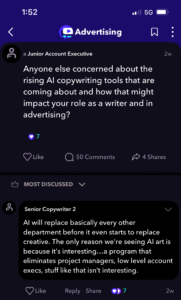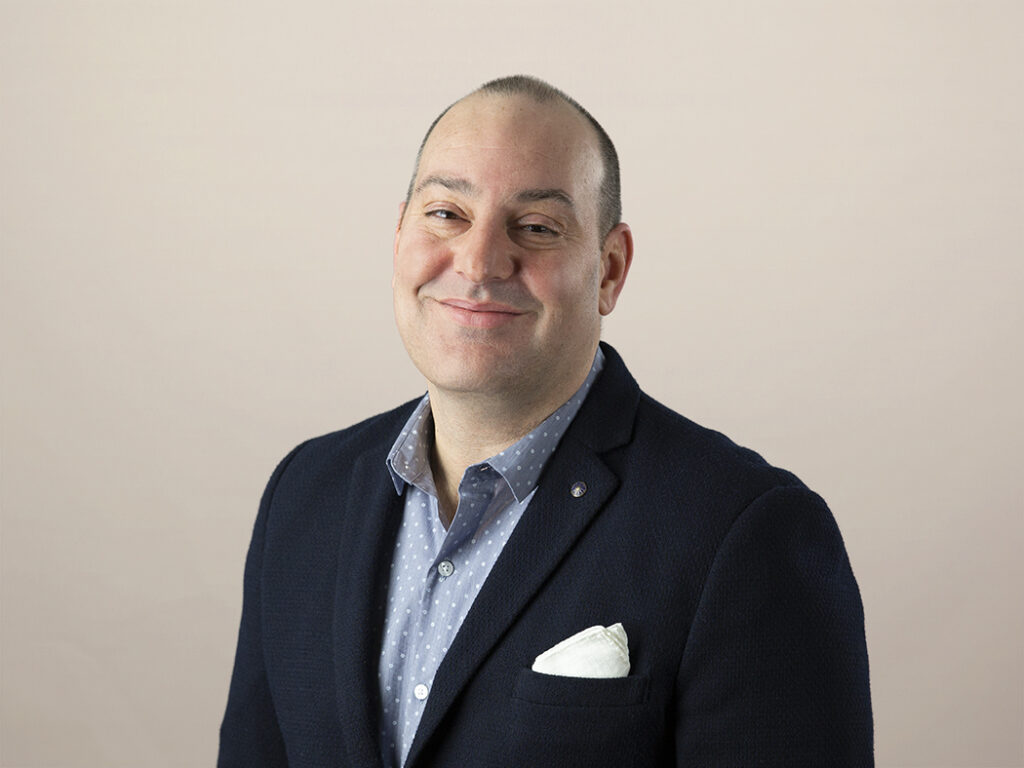Generative AI, Like ChatGPT, Won’t Destroy Creativity. It’ll Save It.
Generative AI, such as DALL·E 2 or ChatGPT, has the marketing industry fretting about the human creator’s role in the future of creativity. Earlier this week, Mint Mobile and agency Maximum Effort posted a video ad starring owner/actor Ryan Reynolds. No big deal, right? Except it was written entirely by ChatGPT. And Reynolds characterizes the AI-authored commercial as “mildly terrifying,” referring to the software’s accuracy and ability to mimic his acerbic tone of voice. With those two words, Reynolds captures the creative industry’s simultaneous fascination and fear about the potential, pitfalls, and opportunities of AI-driven creativity.
Despite generative AI’s utility, the creator community is more uneasy than excited with the notion of powerful tech making their skills and expertise redundant. One holding company executive describes the company’s ambitions for AI and offshoring as both a talent and a profitability strategy.


Generative AI Isn’t Ready For Primetime … Yet
It’s true that any marketing or agency leaders considering handing the creative reigns over to bots should recognize that tomorrow’s creativity involves a combination of people and platforms leveraging the ingenuity of creators with the accuracy/speed of technology. Since we debuted the concept of intelligent creativity at Forrester, both the media and content sides of businesses have advanced significantly in their adoption, development, and commercialization of marketing services powered by technology products and platforms that utilize machine learning and process automation. But our assessment of AI is that it’s not yet ready or capable of autonomously producing creativity.
Generative AI Will Always Need Supervision
At present, generative AI is inaccurate. Forrester characterized the outputs of DALL·E 2 and ChatGPT as coherent nonsense by producing material either deliberately or accidently inaccurate. This requires increased levels of fact-checking, proofing, and editing previously not required. Sure, the software can produce volumes of text, images, or audio at breakneck speed. But marketing and agency executives need to carefully review and vet each piece of AI-produced content for its appropriateness, quality, and accuracy. Given this need for supervision, generative AI can, at best, play a support role to its human partners — humans who still must apply their tastes, expertise, and reason to determine which ideas are worthy of further development.
Algorithms Must Be Trained
Software such as DALL·E 2 and ChatGPT use machine learning and natural language processing to produce text, images, and audio like creators currently do. But the software must be given text-based commands, its algorithms must be constantly trained, and the software must have access to source materials to produce deliverables. Absent these human-generated inputs, AI cannot “create” the desired result. Put another way, ChatGPT can’t imitate Ryan Reynolds without the existence of and access to the content and media that Ryan Reynolds produces. This has profound impact for agencies pursuing AI-powered offerings. The future of creativity will involve agencies creating algorithms (i.e., the Maximum Effort ad algorithm versus W+K, BBDO, Anomaly, Mullen ad algorithms). The quality and effectiveness of each agency’s solution will be determined by the quality of the content, data, and engineering contributed by the agency’s employees responsible for creating, engineering, and optimizing marketing for clients.
AI And Automation Produce A Future For Creativity
The future of the agency is smaller, yet smarter organizations as they combine services and technology to produce greater performance and impact for their clients. The human creative team of today grows to become the human + machine creative team tomorrow. This will reconfigure how marketing gets produced. Maximum Effort + MNTN, Critical Mass + Omni, and Code and Theory + ARound are all expressions of this hybrid concept. The first step to embracing intelligent creativity is accepting that AI won’t destroy creativity — it’ll save it.
